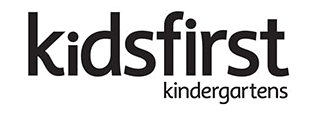
Helping children through change
How you support them can turn challenging times into valuable life lessons and help build resilience that will be with them for the rest of their lives.
Nobody wants to see their child struggle, but like the story about a man supporting an emerging butterfly, sometimes the challenges are necessary so they can grow the resilience to deal with difficult times in later life.
Change can be even tougher on tamariki than the rest of us because it is usually not their choice. Whether it's moving house or to another city, a change to the makeup of their family, starting kindergarten or transitioning to school - decisions are often made by the adults around them or by life itself. It’s no wonder that children can find change scary, frustrating or confusing, and may even be angered by it.
Whatever the nature of change, kindergarten and early learning centre teachers see it up close and personal every day: children moving from one neighbourhood to another, parents separating, special people passing away or becoming sick, the death of a beloved pet, transitions to the next step in schooling and more.
So how do we make change easier on our children and equip them with the skills they’ll need to remain resilient in the face of the inevitable twists and turns of life?
We checked in with experienced teachers across the Kidsfirst network and asked them for their top tricks and tips in dealing with change, and here’s what they told us:
- Introduce tamariki to change slowly and incrementally if you can. It’s not always the case, but moving house, starting school or those first days at a new kindergarten usually offer opportunities to familiarise children with their new environment and the people in it. They’ll feel safest having you with them at first and will usually show signs they are ready for more distance from you as they gain confidence.
- Understand that the feelings surrounding change can be intense. Things that matter deeply to children may not always be evident to the grown-ups around them, so being on the lookout for signs of unsettlement can be helpful. Asking them how they are feeling and helping them put words to confusing emotions can help them voice something that might feel otherwise unmanageable.
- If they’re visibly distressed when you leave them at kindergarten or school in the early days, remember that walking away can be hard for the most experienced of parents. Maybe your first child was a breeze when it came to being left, or quickly adapted to their new surroundings but this one is a whole different story. As hard as these experiences can be as a parent, remember it’s a great learning opportunity to help your child learn to deal with separations and the big and small shifts in life. With the support and encouragement of the adults around them, each good-bye can be a way to help them grow resilience that they’ll need for life ahead. Emotionally present, supportive adults are an essential part of this happening.
- If your child is misbehaving or out of sorts, they may be having a hard time adjusting to something new. It’s extra important at times like that to maintain structure and regular routines. Kindy can be a great source of the sort of stability children need when everything in their world feels like it’s up in the air.
- A great way to help children to deal with change is to get them actively involved with it. They get to feel some sense of control and less powerless. Get them in on the planning and give them an age appropriate job to do – packing their toys in a box ready to shift, or getting their backpack ready for their first day at kindy.
- Just describing the process - what will happen when and how, and what it might mean for the child - can ease the anxiety children may feel about something completely unfamiliar or unknown.
- Other parents, grandparents and even your child’s teachers can be helpful sources of ideas and wisdom about helping kids deal with change. Don’t hesitate to talk with your child’s teacher and let them know if something is going on at home or if they are finding the transition to kindergarten a tricky one - it will be treated in confidence, and it’s likely your teaching team has seen it all before. Letting them know what is going on means they can keep an extra eye out and provide more reassurance, if needed.
Join our whānau





